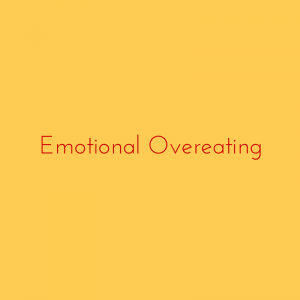 Compulsive overeating, food addiction, binge eating, yo-yo dieting, disordered eating–what does it all mean. Finding clarity on what particular food problem you have helps inform what that best way to treat it. In my last few posts I have highlighted two great groups available in the Austin Area for those who struggle with emotional overeating eating. Today I am going to clarify what emotional overeating is.
Compulsive overeating, food addiction, binge eating, yo-yo dieting, disordered eating–what does it all mean. Finding clarity on what particular food problem you have helps inform what that best way to treat it. In my last few posts I have highlighted two great groups available in the Austin Area for those who struggle with emotional overeating eating. Today I am going to clarify what emotional overeating is.
Simply put emotional overeating is habitually eating in response to emotions–all kinds-happy emotions or distressing emotions-when not physically hungry. Often the assumption about emotional eating is that there is a marked stressful event (trigger) and then the eating occurs. For example, you get chewed out by your boss and then proceed to eat a bowl of candy to deal with feelings of shame, frustration and anger. Often emotional overeating is more subtle, occurring more covertly. And more often then not, there isn’t a clear trigger. Emotional overeating could look like when you are at work or studying and you find yourself snacking, though you are not hungry. Feelings associated with this situation could be boredom, frustration or fatigue. Evening time is common time when emotional eating can occur-fatigue or worry may be festering at this time (Perhaps feeling stressed by the incident with the boss that happened earlier in the day.).
The defining elements of emotional eating is habitually eating when not physically hungry in the presence of aroused emotions. Part of normal eating is eating when not hungry, but it crosses over into emotional overeating when it is the rule not the exception. Emotional eating is not a diagnosis per se, but can be a component of an eating disorder such as binge eating disorder or bulimia nervosa, etc. One doesn’t have to have an eating disorder to emotional overeat. But, emotional overeating can lead to feelings of helplessness, failure, shame, etc. Emotional overeating can lead to preoccupation with weight/shape and food. Emotional overeating can lead to unwanted weight gain, but not in all cases.
If you think you may struggle with emotional eating self-help books, groups and/or counseling can be helpful.